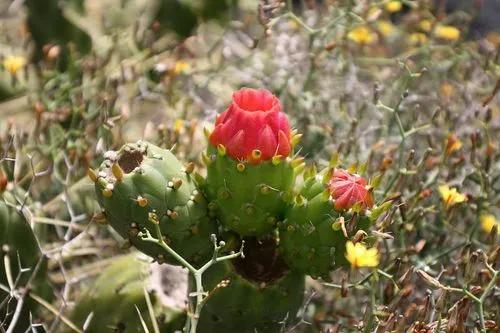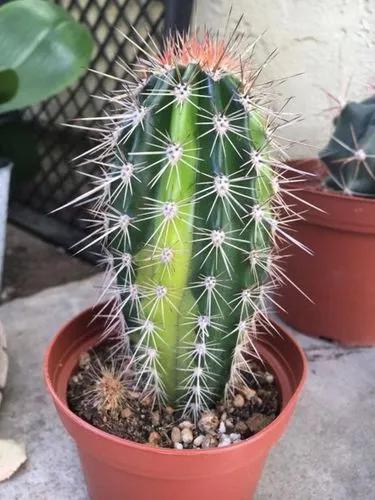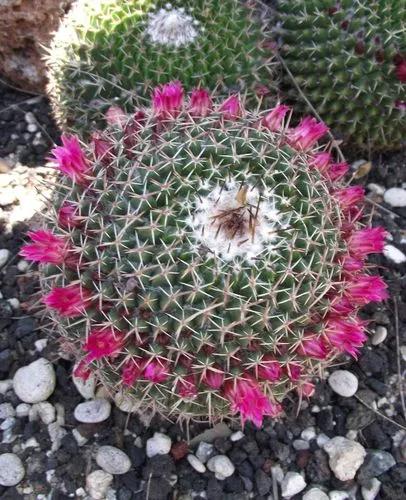Mammillaria zeilmanniana is a cactus endemic to Mexico. Its natural habitat the daytime temperatures are quite high and the nights are cool. It grows on steep of volcanic rock (igneous) face in canyon walls in semi-desert and deciduous forests.
Fishhook cactus Care
Mammillaria zeilmanniana



Mammillaria zeilmanniana is one of the most beautiful Mammillaria. It is an exception from the general rule that red-flowered cactus of this genus do not bloom until they are several years old. It produces a profusion of deep carmine-red flowers while still quite young and small. The young cactus is solitary but slowly forms a cluster of individual nearly globular stems, which are glossy green and usually about 6cm (2.3 inch) high and 5cm (2 inch) across. A four-year-old specimen is likely to fill a 10cm (4 inch) container. The tubercles are 6mm (2.3 inch) high and each areole has 15 to 18 radial white and 2 to 4 central brown spines, all about 1-2cm (0.4-0.8 inch) long. One of the centrals is hooked.
How to Care for the Plant

Water

In spring and summer water moderately, just enough to make the potting mixture moist at each watering, but allowing the top centimetre (0.4 inch) or so of the mixture to dry out before watering again. As cactus begin to form clusters, care should be taken to not allow the excess of water to remain on the surface of the mixture between the stems. Puddles of this sort can easily cause rotting. For this reason, it is a good alternative to water Mammillaria zeilmanniana from below. To do this, stand each pot in a pan containing 5cm (2 inch) of water and leave the pot there until the surface of the potting mixture has become moist to the touch. Leave the pot in water for two or three minutes once a week. During the winter rest period give only enough water to prevent the mixture from drying out.

Fertilizer

A long-term slow-release fertiliser should be incorporated into the potting mixture. If this procedure is carried out, no other feeding should be necessary. Otherwise, give fortnightly liquid feed with high-potassium fertiliser in the growing season only. Alternatively, use fertiliser specially formulated for cacti.

Sunlight

For attractive coloured spines and good flowering, give Mammillaria zeilmanniana direct sunlight all year long. Turn regularly the Mammillaria zeilmanniana to ensure that growth is even.

Soil

Use a potting mixture consisting of one part of coarse sand to three parts of either soil or peat based mixture.

Temperature

During the spring and summer active growth period, normal room temperatures are satisfactory for these cacti, but they do best if kept in a sunny position outdoors during these months. Good ventilation is essential for their health. It is important to give Mammillaria zeilmanniana a winter rest at about 10°C (50°F) if possible. If necessary they can survive a minimum temperature of 5°C (41°F).

Container

Choose any type of container with enough drainage holes.

Popularity

56 people already have this plant 16 people have added this plant to their wishlists
Discover more plants with the list below
Popular articles






